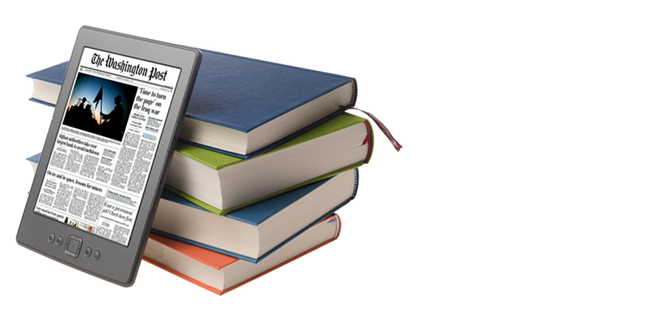Justin Pahl

As a boy in the Indiana suburbs, I remember waking up and walking to the end of my driveway and picking up the morning newspaper. My father and I would sit at our kitchen table, eating cereal and sharing (or fighting over) the Sports section.
I suspect this is a common experience. Reading the morning paper is something millions of people do – at the breakfast table, in the bathroom, on the bus or train.
And in the near future, it might be a thing of the past.
Jeff Bezos' purchase of The Washington Post is the next step of print media's long, slow funeral march. In the last two decades, with the massive growth of the web, print media – and print publishing generally – has rapidly declined. And the man who just bought one of the major American newspapers has been leading the charge of digital media.
At Amazon, the company Bezos founded and still helms, he's overseen the demise of most major American book sellers, including Borders and many independent bookstores put out of business, and Barnes & Noble struggling. Amazon's stable of digital books has, in the last five years, revolutionized the way publishing is conducted in the US. It has taken advantage of consumers' expectations of immediate satisfaction and ease by offering an increasing number of books online, or on its Kindle. Faced with the opportunity to buy a book for a few dollars from home – and to have it preserved in digital format – or to drive to a book seller and pay at least $15 for a physical document that will slowly fall apart, most consumers have chosen the former route. It may seem crass and cynical – after all, who doesn't love curling up with an old book on a rainy Saturday, or perusing the endless stacks of a quaint used book store? – but it's also been ruthlessly effective.
Print journalism has long been on the ropes in the US – and elsewhere. It has faced the same problems books have faced, though oftentimes worse. Consumers can get news, as it breaks, from dozens of websites – and they can get it for free. In the last few years, both The Boston Globe and The Philadelphia Inquirer were sold for a fraction of what their owners initially paid.
For newspapers or magazines to survive, they need a strong and accessible web presence. Print will never die completely – there will always be those nostalgic for a physical document to read – but the print that survives will only survive because of the financial windfall brought by online readership. Those papers or journals that fail to adapt to this new medium will likely vanish.
This means many things for how we get our news. It likely means a "centralization" or "homogenizations" of sorts – meaning that the information put out will be controlled by a few major outlets. This news will likely be dominated by larger national and international affairs. It seems likely that small communities will struggle to make their voices heard.
This homogenization has occurred in the publishing industry. As Amazon has pushed out or weakened traditional publishing houses, the market for smaller, more artistic books has been pinched. Just last month, Random House and Penguin – two of the world's largest publishers – merged to create the largest publisher in the world. But this wasn't a move of power; it was a survival tactic. And combining two houses into one invariably means fewer options for prospective authors, especially those writing literary books that don't sell as widely as popular fiction.
Like so many forms of old media, the Post was suffering, too. From 2011 to 2012, profits dropped by almost 85% percent, while circulation fell by 7%. What Bezos' intentions are remain unclear. Hopes that he will revitalize the print edition seem far-fetched, considering his background. He will undoubtedly use some of the innovative spirit he developed at Amazon, though what those specific innovations are, no one knows.
The larger question is what those innovations will mean for other forms of print media. As the man who has driven major reforms in the publishing industry, it seems likely that Bezos will dictate the future of print media, too. An increased and streamlined web presence is a certainty. Beyond that, it's anyone's guess. But those of us who care about a diverse and healthy media – a media that allows space for different voices, be they large or small –will be watching with great interest.
So will those of us who still get a thrill out of reading the newspaper with our morning coffee. My advice? Enjoy it while you can. Sometime soon, print newspapers are likely to go the way of the 8-track or the vinyl – artifacts of a bygone era.
Justin Pahl is a staff editor at The Fountain.
August 14, 2013









